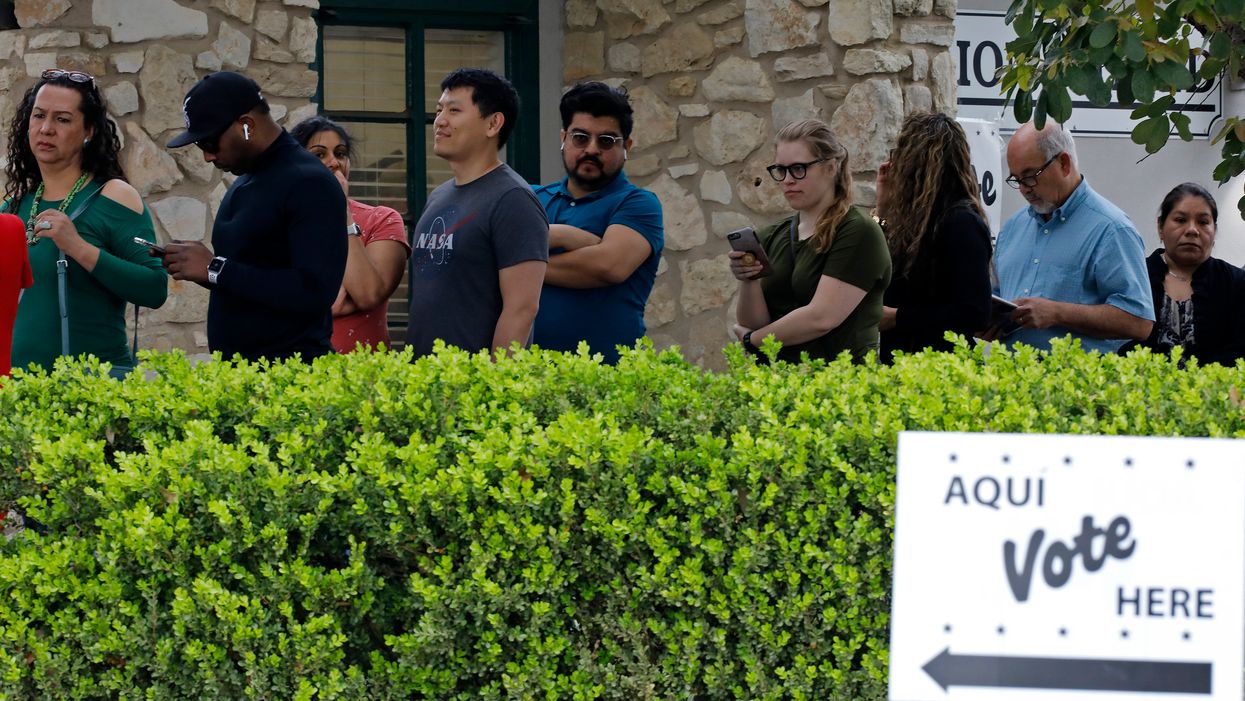Texas Democrats announced an aggressive plan Tuesday to boost the ranks of voters in the second most populous state by at least a million, despite the coronavirus crisis making such efforts harder than ever.
Texas is one of nine states without online registration, meaning would-be voters must either submit an application in person or print out and mail in a document found online. Several of the required steps are already difficult for poor people and will be further complicated by closures and social distancing until the Covid-19 outbreak subsides.
To ease this burden, the state Democratic Party launched "Register Texas,"an online tool allowing any resident, regardless of political affiliation, to request a registration form and have it mailed to them along with a postage-paid envelope already addressed to the proper county clerk. Visitors to the site can also check and update their registration status.
Texas has about 16 million registered voters. The Democrats believe there are as many as 5 million people in the state who are eligible but not registered and their goal is to sign up at least 1 million of them. (The nonpartisan civic engagement group Register2Vote says that could be the total of unregistered across the state.)
"However many people request an application, that's how many we'll send out," said Luke Warford, voter expansion director for the Texas Democratic Party.
Either way, a turnout increase of several hundred thousand, especially in Latino and black communities in the cities and suburbs, would improve Democrats' longshot chances of turning the state blue on the electoral vote map for the first time in 44 years — while also flipping as many as six House seats now in GOP hands.
Boosting registration will help, but voting rights groups and Democrats have also filed an array of lawsuits hoping, among other things, to force the state to relax rules restricting voting by mail and the casting of straight-ticket ballots.
Demographers say the changing Texas population assures it will become a battleground state sometime this decade. Two years ago, Beto O'Rourke came within 215,000 votes (2.6 percentage points) of ousting GOP Sen. Ted Cruz and becoming the first Democrat to win a statewide race since 1994.
In a typical presidential election year, the Texas Democrats would be hosting a series of in-person "get out the vote" events, but the coronavirus pandemic has ruled that out. Instead, the party has shifted its efforts online to reach as many eligible voters as possible before November.
The Register Texas platform is available in both English and Spanish and is powered by an open source tool created by Register2Vote.
Warford identified an additional benefit of the registration drive: The party will have built a bolstered database of people who can become a core of its "get out the vote" drives in November.
Texas is one of 16 states that requires a specified reason to vote absentee. The Democrats have gone to court to say the "sickness" excuse is broadly worded enough to allow people to cite fear of viral infection during a public health emergency.
"It's easy to think of the things that we're doing as political, but voter registration should not be political," Warford said. "This is about people accessing their constitutional right to vote."




















Marco Rubio is the only adult left in the room